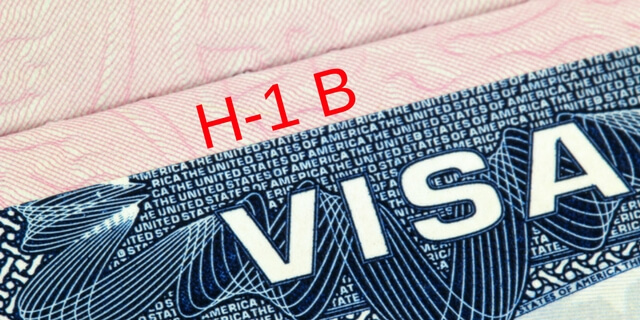Under the Trump administration, the U.S. Citizenship and Immigration Services (USCIS) will apply a higher level of scrutiny for those seeking extensions requests as well as new H-1B Visa applicants. Since taking power, under President Trump’s leadership the USCIS has enacted several new regulations in order to tighten H-1B petitions. Here are some of them:
- H-1B petitioners are required to pre-register for the H1-B cap lottery.
- Companies hiring H-1B visa workers will be allowed to submit cap petitions only after they win cap numbers.
- Proposed priority mechanism for deciding the H-1B cap numbers for companies (likely employers are those requiring highly-paid and highly-skilled workers.)
- Proposed to end the rule that allows H-1B visa holders’ spouses to work in the U.S.
- H-1B children may have to leave the U.S. after they turn 21 years old after losing their dependent status.
H-1B visa application (excerpted from USCIS)
The H-1B program applies to employers seeking to hire nonimmigrant aliens as workers in specialty occupations or as fashion models of distinguished merit and ability. A specialty occupation is one that requires the application of a body of highly specialized knowledge and the attainment of at least a bachelor’s degree or its equivalent.
What We Can Expect for H-1B Visa Holders Under Trump
- The number of U.S. companies hiring H-1B visa workers will decrease. Trump has tightened the H-1B approval system, thus slowing down the approval process.
- The cost of dealing with USCIS with these new rules in place will dramatically increase. This may force some U.S. companies to give up on hiring H-1B workers altogether, and hire more American workers instead.
- H-1B visa workers’ spouses and children (on H-4 visas) will face much uncertainty under Trump. This may discourage potential future H1-B applicants and those who may otherwise have sought extensions. The H-1B petitions will continue to dwindle for as long as Donald Trump’s remains president.
- Foreigners’ interest in working in the U.S. will be declining.
- STEM-related companies, organizations, and institutions will be greatly impacted by Trump’s poorly thought-out policies. This, in turn, will affect the U.S. economy and overall GDP – a measurement of global competitiveness. (Please note that STEM fields are considered quite challenging to many Americans because of their poor foundation in STEM-related disciplines.)
Related blog posts:
- H-1B may work for more than one employer at the same time
- Minimum Salary for H1B workers Raised from $60,000 to $90,000
- Top 30 U.S. Companies of New H-1B Petitions Approved in 2016
- Tougher H-1B Visas for International Students
-
It’s Legal to Pay H-1 B Workers a Lot Less than Americans


Trackbacks/Pingbacks